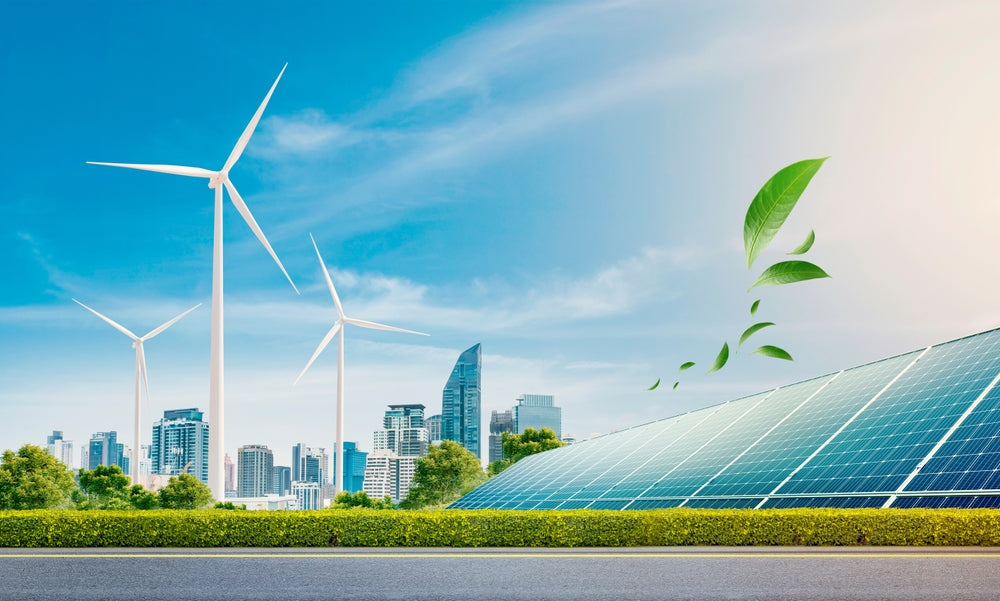
In recent years, solar power has gained significant attention as a sustainable and cost-effective solution to meet the increasing energy demands of urban areas. With the rise of solar energy technologies, more homeowners, businesses, and governments are exploring the potential of using solar power to reduce dependency on conventional energy sources and minimize environmental impact.
\But the question remains: Is solar power worth it in urban areas, especially in places like Pakistan, where sunlight is abundant but challenges exist?
In this blog, we'll explore the benefits and challenges of solar power in urban areas, focusing on the Pakistani context and highlighting the role of local brands like PowerHouseExpress in promoting clean energy solutions.
The Role of PowerHouseExpress in Pakistan’s Solar Power Landscape
PowerHouseExpress is one of Pakistan's leading solar energy solution providers, offering a wide range of solar products and services, including solar panels in Pakistan, to meet the growing energy needs of both residential and commercial sectors. With a strong commitment to sustainability, PowerHouseExpress is dedicated to making solar power accessible and affordable for urban consumers.
The company offers complete solar solutions, including solar panel installation, maintenance, and energy storage options. PowerHouseExpress's advanced technology ensures efficient energy generation, making it easier for urban homeowners and businesses to adopt solar power and enjoy its long-term benefits.
The brand is known for its customer-centric approach, providing tailored solutions that fit the unique needs of each consumer. From small homes to large commercial buildings, PowerHouseExpress is transforming how urban areas in Pakistan utilize solar energy.
Now that we've introduced PowerHouseExpress, let's delve deeper into the broader context of solar power in urban areas and whether it’s truly worth it.
Solar Power: A Sustainable Energy Source for Cities
Solar power, a renewable energy source derived from the sun's radiation, has become a popular option for reducing reliance on fossil fuels. Cities worldwide, especially those in sunny regions like Pakistan, have enormous potential to harness solar power to meet their energy needs.
Why Solar Power in Urban Areas?
Urban areas are known for their high energy consumption due to dense populations, industrial activities, and infrastructure demands. This is where solar power comes in as a viable alternative to traditional energy sources. Here’s why solar power in urban areas is gaining momentum:
- Abundant Sunlight: Many urban regions, including cities in Pakistan, receive ample sunlight throughout the year. This makes solar power an excellent option for generating electricity in these areas.
- Reduced Carbon Footprint: Solar energy is a clean, renewable energy source that produces no greenhouse gases or air pollution during operation. By switching to solar power, urban areas can significantly reduce their carbon footprint and contribute to a greener environment.
- Energy Independence: With solar power, individuals and businesses can reduce their dependency on national grids, which are often prone to blackouts and fluctuations, particularly in countries like Pakistan. This leads to greater energy security and stability.
- Lower Energy Costs: Although the initial investment in solar panels and installation may be high, solar power offers long-term cost savings. Once installed, solar systems require minimal maintenance, and users can enjoy reduced or even zero electricity bills.
The Challenges of Solar Power in Urban Areas
While solar power offers numerous benefits, its adoption in urban areas is not without challenges. Some of the main obstacles to solar power implementation in cities include:
Space Limitations
Urban areas are often characterized by limited space, making it difficult to install large solar panel systems, especially on rooftops of high-rise buildings. Residential homes with small rooftops may not have enough surface area to generate sufficient solar energy for their entire household’s needs. Similarly, commercial buildings with limited space face challenges in meeting their large energy demands with solar power alone.
Shading from Buildings and Trees
Another issue faced in urban environments is shading from tall buildings, trees, or other structures. Solar panels rely on direct sunlight to function effectively, and shading can significantly reduce their efficiency. Even partial shading on a single solar panel can affect the overall performance of the system. Urban planners and solar installers must carefully consider the positioning of panels to maximize their exposure to sunlight.
High Initial Costs
Although solar power systems provide long-term savings, the initial costs can be a deterrent for many urban dwellers. The cost of purchasing solar panels, batteries, inverters, and the solar power installation itself can be substantial. While the return on investment is positive in the long run, many individuals and businesses are hesitant to make the upfront investment, especially when other pressing expenses exist.
Aesthetic Concerns
In densely populated urban areas, the appearance of buildings is often carefully controlled. Some people believe that solar panels may detract from the aesthetics of their home or office building, especially in areas with strict architectural guidelines. While modern solar panels have become more visually appealing, they may still be a concern for those prioritizing the appearance of their property.
Benefits of Solar Power on the Environment and Economy
Despite these challenges, the advantages of solar power far outweigh the drawbacks, especially when considering the broader benefits for the environment and economy.
Environmental Benefits
- Reduction in Greenhouse Gas Emissions: Solar power is a clean and renewable energy source that produces no carbon dioxide or other harmful emissions during operation. By using solar energy, cities can significantly cut down on their carbon footprint, improving air quality and reducing the impact of climate change.
- Decreased Water Usage: Traditional energy production, particularly in coal and natural gas plants, requires substantial amounts of water for cooling and energy generation. Solar power, on the other hand, uses little to no water, which helps conserve this vital resource.
Economic Benefits
- Job Creation: The solar industry is a growing sector that creates numerous job opportunities. From manufacturing and installation to maintenance and research, solar power contributes to economic growth and job creation in urban areas.
- Energy Savings: Solar power allows individuals and businesses to save on their electricity bills, freeing up resources that can be used elsewhere. In regions where electricity prices are high, such as Pakistan, solar power can offer significant financial relief to both residential and commercial consumers.
Is Solar Power Worth It in Urban Areas?
Now that we’ve discussed the benefits and challenges of solar power, the question remains: Is it worth it for urban areas? The answer depends on several factors, including the location, building type, energy consumption, and available budget.
For Residential Homes
For homeowners in urban areas, especially those living in houses with sufficient rooftop space, solar power can be a game-changer. With the right solar power installation, residents can enjoy reduced electricity bills, and energy independence, and contribute to a cleaner environment.
While the initial investment may be steep, government incentives and financing options, such as those provided by PowerHouseExpress, can make the transition to solar power more affordable.
For Commercial Buildings
Commercial buildings in urban areas often have higher energy demands, making solar power a more significant investment. However, the long-term savings, combined with the environmental benefits, make it an attractive option for businesses looking to reduce their operational costs and enhance their sustainability efforts.
In addition, commercial buildings with ample rooftop or parking space can install large solar panel systems to generate a substantial portion of their energy needs.
The Role of Government and Policy
In urban areas, the success of solar power often depends on government policies and incentives. In Pakistan, for example, the government has introduced various solar incentives to encourage the adoption of renewable energy.
However, more comprehensive policies and support are needed to make solar power a viable option for all urban dwellers. By offering tax credits, rebates, and subsidies, governments can help lower the initial costs of solar power systems and encourage more people to make the switch.
Conclusion
Solar power is a viable and worthwhile solution for meeting the energy needs of urban areas. Despite the challenges of space limitations, shading, and upfront costs, the long-term environmental and economic benefits of solar power are undeniable.
With innovative brands like PowerHouseExpress offering accessible and efficient solar solutions, more homeowners and businesses can adopt solar power and contribute to a more sustainable future.
Whether you’re a homeowner looking to reduce your electricity bills or a business aiming to enhance your green credentials, solar power can provide a reliable and cost-effective solution in urban environments.








